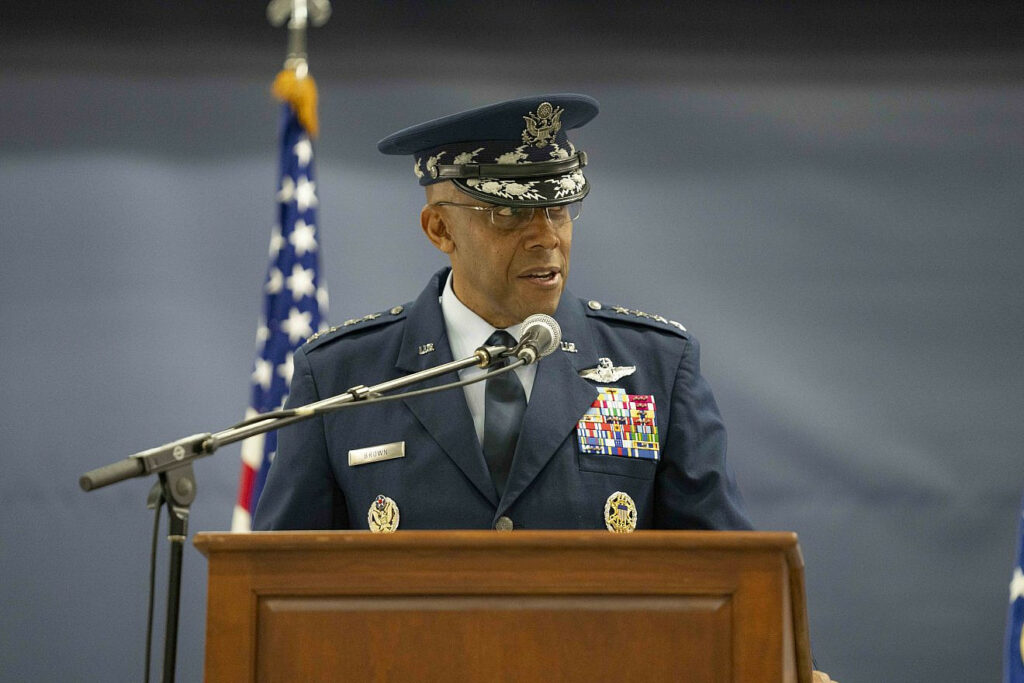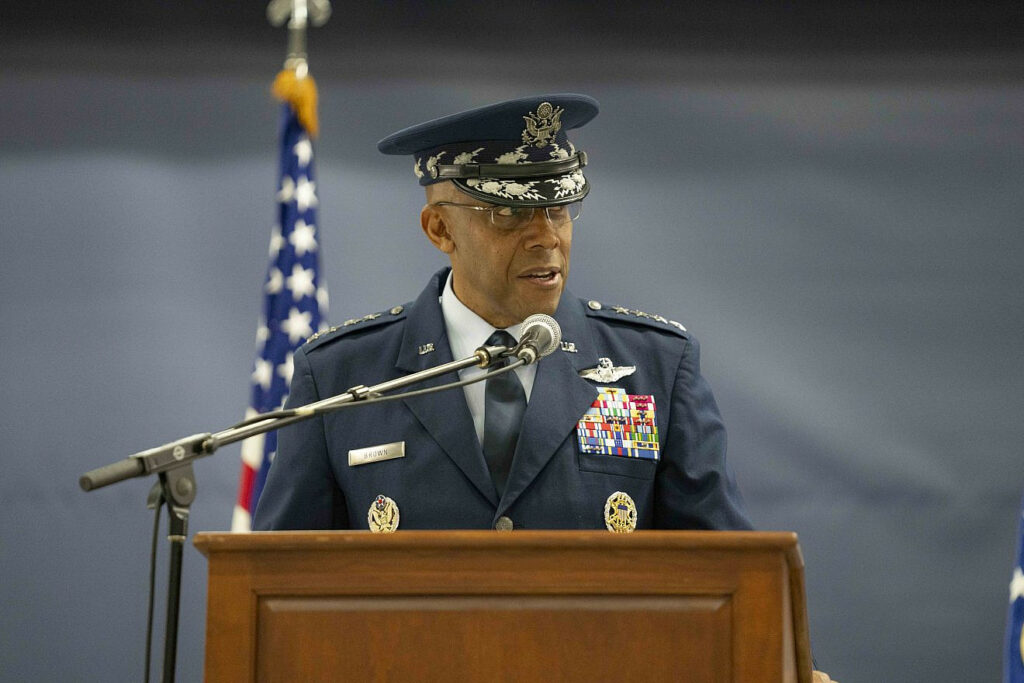Your cart is currently empty!

‘US will have difficulty defending Israel against Hezbollah’

‘US will have difficulty defending Israel against Hezbollah’
The chairman of the Joint Chiefs noted that it is harder to repel the shorter-range munitions used by the Lebanese terror group, and warned that Iran could be drawn into the conflict.
The United States likely would not be able to help Israel defend itself against a broader war with Hezbollah in the way it did when Iran launched a barrage of missiles and drones at the Jewish state in April, the chairman of the Joint Chiefs of Staff said on Sunday.
Air Force Gen. Charles Q. Brown noted that it is harder to repel the shorter-range rockets from Lebanon.
An Israel-Hezbollah war also risks triggering a direct military response by Tehran, he added.
Iran “would be more inclined to support Hezbollah” than it is the Hamas terror group in the Gaza Strip, “particularly if they felt that Hezbollah was being significantly threatened,” Brown told reporters.
Brown said the Biden administration continues to urge Israel against widening the conflict in the north. Washington’s key message is “to think about the second order of effect of any type of operation into Lebanon, and how that might play out and how it impacts not just the region, but how it impacts our forces in regions as well,” he said.
The general stressed that the safety of U.S. forces remains a priority, noting that no U.S. bases have been attacked since February.
Hezbollah has attacked northern Israel nearly every day since joining the war in support of Gaza-based Hamas on Oct. 8, killing more than 20 people and causing widespread damage. Tens of thousands of Israeli civilians remain internally displaced due to the ongoing violence.

Since Oct. 8, Hezbollah has fired more than 5,000 rockets, anti-tank missiles and suicide drones at Israeli border communities.
Last week, the IDF authorized operational plans for a campaign aimed at pushing Hezbollah north of the Litani River, which was also the stated goal of 2006’s UNSC Resolution 1701.
Israeli Prime Minister Benjamin Netanyahu told Israel’s Channel 14 on Sunday that Israeli forces are being deployed to the northern border for defensive purposes “but also to bring all the residents of the north home.”
“If we can do it politically, that would be great,” he said of ongoing U.S.-brokered talks. “If not, we will do it in another way, but we will bring everyone back home—all the residents of the north and the south.”
Any diplomatic solution for the northern border “will not be an agreement on paper,” he emphasized, but “will include the physical removal of Hezbollah from the border, and we will have to enforce it.”
In a video message published overnight Saturday, Hezbollah chief Hassan Nasrallah vowed to “fight without restraints, without rules, without limits.” Nasrallah has also threatened that “an invasion of the Galilee remains on the table if the confrontation escalates.”
Senior U.S. officials have assured Jerusalem that the White House would offer Israel the security assistance it needs to fight the Iranian terrorist proxy, according to a report on Friday. However, the United States is not willing to deploy American troops on the ground in such a scenario, reports said.
During a meeting with Netanyahu in Jerusalem on June 17, presidential envoy Amos Hochstein reportedly rejected Israel’s demand that any diplomatic deal to end the conflict in the north be based on the implementation of Security Council Resolution 1701.
Instead, he said it should include a range of options, including moving Hezbollah six miles from the border. He stressed that the U.S. was concerned about further escalation and called for calm on both sides.
The post ‘US will have difficulty defending Israel against Hezbollah’ appeared first on Israel365 News.
Israel in the News